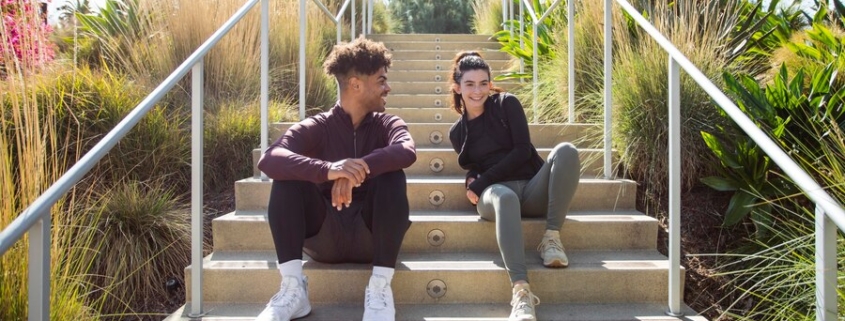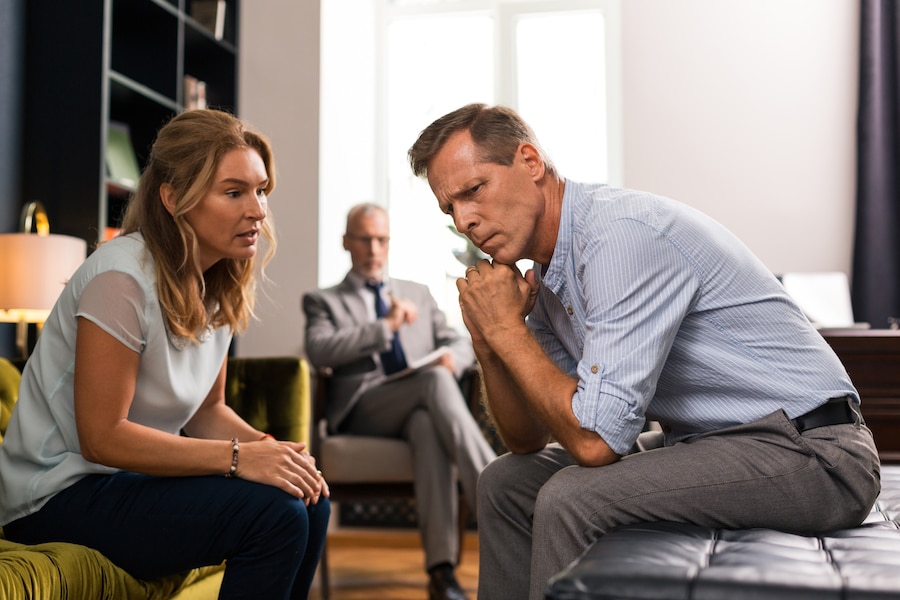Substance abuse is a widespread problem that affects many people and their loved ones in Orange County, California, a region known for its beautiful beaches and affluent neighborhoods. Comprehensive and effective substance abuse treatment programs are critical in addressing the ongoing public health crisis. This article will provide a detailed overview of the various types of substance abuse treatment programs available in Orange County, with a special emphasis on options for couples seeking rehab together.
Navigating the maze of treatment options can be daunting, especially when considering the unique needs of both individuals and couples. Understanding the landscape of available treatments is critical. This article aims to provide readers with the knowledge they need to make informed decisions about their recovery path by discussing the benefits, challenges, and suitability of each type of program.
Couples Rehab Services
Inpatient Treatment Programs
Inpatient treatment programs, also known as residential treatment programs, are a cornerstone in the fight against substance abuse. These programs require individuals to live in a treatment facility for a set period of time, which can range from a few weeks to several months, depending on the severity of the addiction and the patient’s specific needs. Several facilities in Orange County, California, provide comprehensive inpatient treatment programs that are structured and supportive of recovery.
Overview of Inpatient Programs
Inpatient treatment programs are highly structured and provide a controlled environment where individuals can focus entirely on their recovery without the distractions and temptations of everyday life. These programs typically include a combination of medical detox, individual and group therapy sessions, educational workshops, and holistic therapies. The goal is to address not only the physical aspects of addiction but also the psychological, emotional, and social factors that contribute to substance abuse.
Benefits of Inpatient Treatment
One of the primary advantages of inpatient treatment is the level of care and supervision available. Patients have 24-hour access to medical professionals and therapists, ensuring that any health concerns or emotional crises are addressed immediately. This constant support is especially important during the early stages of recovery, when withdrawal symptoms and cravings can be most intense.
Inpatient programs also provide a sense of community and peer support, which can be extremely beneficial for people dealing with feelings of isolation and shame. Being surrounded by others who are going through similar experiences can foster a sense of community and mutual encouragement, both of which are essential components of the recovery process.
Furthermore, the structured environment of inpatient treatment aids in establishing a routine and instilling healthy habits. Patients engage in daily activities that promote both physical and mental health, such as exercise, meditation, and nutritional counseling. This structure can be especially beneficial for people who have struggled to live a stable and healthy lifestyle due to their addiction.
Challenges and Considerations
While inpatient treatment programs offer numerous benefits, they are not without challenges. One of the primary considerations is the time commitment required. Individuals must be willing to take a leave of absence from work, school, or other responsibilities, which can be a significant barrier for some. Additionally, the cost of inpatient treatment can be substantial, and not all insurance plans provide adequate coverage for these programs.
Another challenge is the transition back to daily life after completing an inpatient program. The controlled environment of the treatment facility can feel like a safe haven, but re-entering the outside world can be daunting. To address this, many inpatient programs include aftercare planning and support to help individuals maintain their sobriety and continue their recovery journey once they leave the facility.
Inpatient treatment programs in Orange County, CA, offer a comprehensive and immersive approach to substance abuse recovery. While they require a significant commitment of time and resources, the benefits of a structured, supportive, and medically supervised environment can make a profound difference in the lives of individuals struggling with addiction.
Outpatient Treatment Programs
Outpatient treatment programs are a flexible and accessible option for people who want to get help with substance abuse while continuing to live their normal lives. These programs provide varying levels of care and are frequently tailored to meet the unique needs of each patient. Below, we look at the various types of outpatient programs, their suitability for different people, and how they balance treatment with daily life.
Types of Outpatient Programs
Outpatient treatment encompasses a wide range of programs, each designed to provide varying levels of support and intervention:
- Standard Outpatient Programs (OP): These programs typically involve regular check-ins with a counselor or therapist, ranging from once a week to a few times a month. They focus on individual counseling, group therapy, and educational sessions to help patients understand and manage their addiction.
- Intensive Outpatient Programs (IOP): IOPs require a more substantial time commitment, often involving multiple therapy sessions each week. These programs are designed for individuals who need more intensive support but do not require 24-hour supervision.
- Partial Hospitalization Programs (PHP): Also known as day treatment, PHPs provide a higher level of care than IOPs. Patients attend treatment for several hours each day, several days a week, but still return home in the evenings. These programs are ideal for those who need significant medical and psychological support but have a stable home environment.
- Continuing Care Programs: After completing a more intensive treatment program, patients may transition into continuing care to maintain their recovery. These programs include regular group meetings, ongoing therapy, and other support services to help individuals stay on track.

Suitability for Different Individuals
Outpatient treatment programs can be highly effective for a variety of individuals, depending on their specific circumstances:
- Mild to Moderate Substance Use Disorders: Individuals with less severe addiction issues may find that outpatient treatment provides sufficient support to overcome their dependency without the need for inpatient care.
- Strong Support Systems: Those with a stable home environment and a strong network of family and friends may thrive in outpatient programs, as they can leverage this support while participating in treatment.
- Work and Family Commitments: Outpatient programs are ideal for individuals who need to maintain their daily responsibilities, such as work or childcare, while receiving treatment. The flexibility of these programs allows patients to attend therapy sessions around their existing schedules.
- Motivated Individuals: Success in outpatient treatment often requires a high level of personal motivation and commitment. Those who are determined to recover and can stay disciplined outside of a structured environment may do well in these programs.
Balancing Treatment with Daily Life
One of the significant advantages of outpatient treatment programs is the ability to balance recovery with daily life. However, this also comes with its own set of challenges and requires careful planning and commitment:
- Flexible Scheduling: Outpatient programs offer various scheduling options to accommodate patients’ needs. Evening and weekend sessions can help individuals attend treatment without disrupting their work or family obligations.
- Personal Accountability: Patients in outpatient programs must take a proactive role in their recovery, utilizing coping strategies and support systems to manage triggers and stressors in their daily lives.
- Community Integration: Outpatient treatment allows individuals to remain integrated within their communities, maintaining relationships and responsibilities while receiving support. This can be beneficial for building resilience and practicing new skills in real-world settings.
- Ongoing Support: Many outpatient programs include access to support groups and resources that can provide ongoing encouragement and accountability. This network can be crucial for sustaining long-term recovery.
In summary, outpatient treatment programs in Orange County, CA, offer a flexible and accessible option for individuals seeking substance abuse treatment. By providing various levels of care and the ability to balance treatment with daily responsibilities, these programs can cater to diverse needs and support individuals on their path to recovery.
Couples Rehab Programs
Couples rehab programs are specialized treatment options that address substance abuse issues within the framework of a romantic relationship. These programs recognize the distinct dynamics and challenges that arise when both partners struggle with substance abuse. Unlike traditional rehab settings, couples rehab focuses on creating a supportive environment in which partners can collaborate to achieve recovery. This approach frequently includes joint therapy sessions, in which couples can discuss the impact of their addiction on their relationship, learn effective communication skills, and develop mutual support plans.
Unique Features of Couples Rehab
One of the primary advantages of couples rehab is the opportunity to strengthen the relationship while also addressing substance abuse issues. Partners who participate in rehab together can build trust and intimacy as they support one another through the recovery process. This collaborative effort can lead to a better understanding of each other’s struggles and a stronger sense of shared purpose. Furthermore, couples rehab programs frequently include family therapy sessions, which can help improve overall family dynamics and foster a healthier home environment. Working together, couples can create healthier coping mechanisms and lay the groundwork for long-term sobriety.
Potential Challenges
Despite the numerous benefits, couples rehab programs pose unique challenges. One major concern is the possibility of codependency, in which one partner’s recovery is hampered by the other’s ongoing difficulties. Couples must maintain individual accountability and avoid becoming overly enmeshed in their recovery journeys. Furthermore, couples rehab necessitates a high level of commitment from both partners, as the process can be emotionally intense and demanding. There may also be times when one partner is more motivated or advances faster in their recovery, resulting in potential conflicts and feelings of resentment. To successfully navigate these challenges, couples must engage in open and honest communication and seek professional guidance.
In conclusion, couples rehab programs provide a distinct and supportive approach to substance abuse treatment, emphasizing the value of mutual support and relationship development. While there are some drawbacks, the benefits of stronger relationships and shared recovery goals can significantly increase the likelihood of long-term sobriety for both partners.
Substance Abuse Treatment Programs at Couples Rehabs
In conclusion, Orange County, California, provides a wide range of substance abuse treatment programs tailored to the unique needs of individuals and couples seeking recovery. Inpatient treatment programs provide a structured and immersive environment that promotes intensive healing, whereas outpatient treatment programs provide flexibility and support for those who must balance recovery with daily responsibilities. Couples rehabilitation programs are distinguished by their emphasis on treating partners simultaneously, which improves both individual recovery and relationship dynamics.
Choosing the right treatment program is an important step toward recovery and should be determined by individual circumstances, the severity of the addiction, and personal preferences. Inpatient programs may be ideal for those who require a high level of care and supervision, whereas outpatient programs may be better suited to those who must maintain work or family obligations. Couples rehab programs can be especially beneficial for partners who want to support each other during the recovery process.
Ultimately, the goal of these programs is to provide the tools, support, and environment required for long-term sobriety and an improved quality of life. Individuals and couples should thoroughly research and consider their options, as well as seek professional advice, before making decisions about their treatment journey. Whether you choose inpatient, outpatient, or couples rehab, the journey to recovery is unique and requires dedication, support, and the right program. For personalized guidance on selecting the best treatment program for your needs, don’t hesitate to reach out to us today.

FAQs
What types of substance abuse treatment programs are available in Orange County, CA?
Answer: Orange County offers a variety of programs, including inpatient, outpatient, detoxification, medication-assisted treatment (MAT), and holistic programs.
How can I determine the most suitable treatment program for my needs in Orange County?
Answer: Couples Rehab offers free consultations to assess your situation and recommend programs in Orange County that best address your specific substance abuse and recovery goals.
What are the benefits of inpatient treatment programs in Orange County?
Answer: Inpatient programs provide a structured, supportive environment for complete focus on recovery, free from distractions. Several facilities with inpatient programs exist in Orange County.
Do outpatient treatment programs in Orange County offer flexibility for individuals with work or family commitments?
Answer: Absolutely! Outpatient programs allow individuals to continue living at home and attending treatment sessions throughout the day or evening. Many outpatient options are available in Orange County.
Is detoxification (detox) a necessary step in all substance abuse treatment programs in Orange County?
Answer: Not always. Detoxification helps manage withdrawal symptoms when stopping substance use. Depending on the severity of your addiction, detox might be recommended before entering an Orange County treatment program.
What is medication-assisted treatment (MAT), and is it offered in Orange County treatment programs?
Answer: MAT combines medication with therapy to manage cravings and withdrawal symptoms. Several Orange County treatment centers offer MAT programs for specific substances.
What are some examples of holistic treatment approaches offered in Orange County substance abuse programs?
Answer: Holistic programs integrate traditional therapy with practices like yoga, meditation, acupuncture, and nutritional counseling, promoting overall well-being in Orange County facilities.
Are there treatment programs in Orange County specifically designed for couples struggling with addiction?
Answer: Yes! Couples Rehab partners with various treatment centers in Orange County that offer programs specifically designed for couples to heal and recover together.
Do treatment programs in Orange County offer different modalities like cognitive-behavioral therapy (CBT) or dialectical behavior therapy (DBT)?
Answer: Yes, many programs utilize evidence-based therapy approaches like CBT or DBT to address underlying issues related to addiction. Couples Rehab can help you find Orange County programs with your preferred modalities.
How can I ensure my privacy is protected while attending a substance abuse treatment program in Orange County?
Answer: All reputable programs in Orange County adhere to strict HIPAA privacy regulations, safeguarding your medical information.














